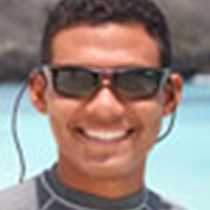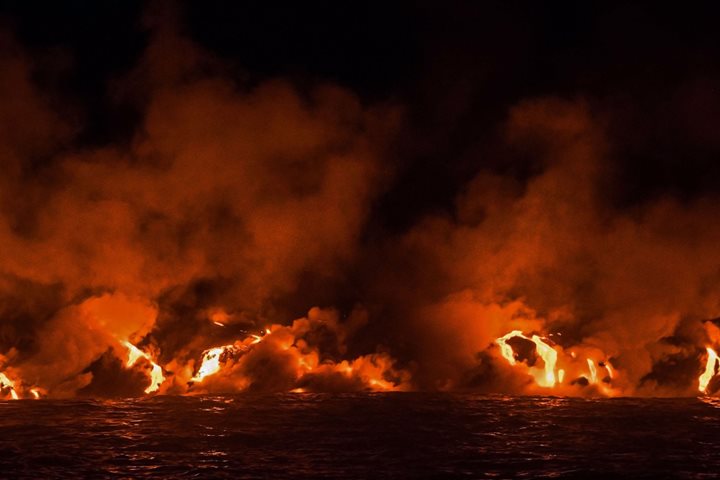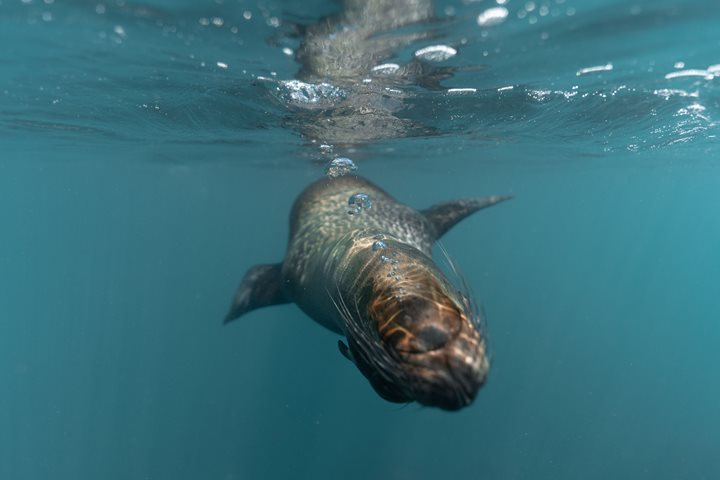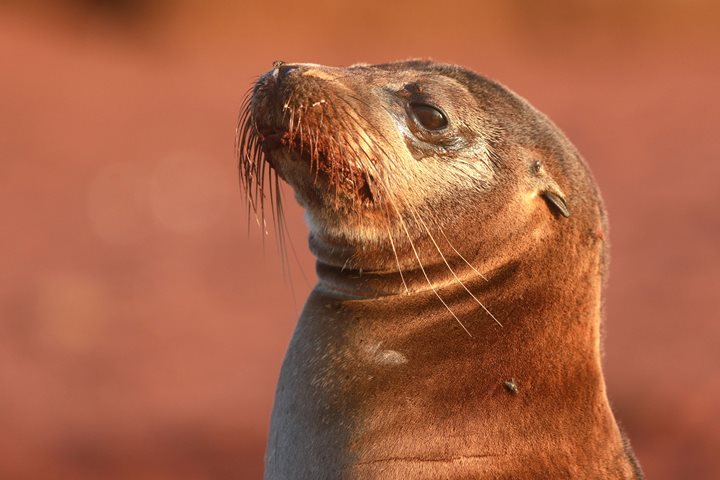Today is the last day of expedition in the Galapagos Islands aboard the National Geographic Islander. The island we visited was Genovesa, or “birds island”, on the far northeast corner of the archipelago.
This Island is home to hundreds of thousands of birds and we had the chance to visit the best sites. During the morning, after breakfast we landed on Darwin Bay’s beach. As this island is far from the rest and close to the open ocean in the archipelago, thousands of red footed boobies use it as a nesting site as do frigate birds and many others sea birds. Another important fact is that tour boats are relatively new here, therefore the behaviour of these animals towards visitors is so naïve that the experience with them is very intimate. The flat, easy terrain made it possible for everybody to explore easily, take great photographs and bring back home very good memories.
Later, as the sun came up in the sky, we deployed the Zodiacs for those who wanted to enjoy the beach and for those who preferred to snorkel one last time. There are plenty of fish in the waters of Genovesa as it is above the equator and this is also where we found fur seals.
During the afternoon we visited a place called Prince Phillip’s Steps. As this Island was being formed it collapsed and more eruptions filled the empty spaces creating lava tunnels, which are now used by little seabirds called storm petrels. While we hiked we tried to find the elusive short eared owl that preys on them.
We have had so many amazing experiences in this especial place called Galapagos which every guest will keep in their hearts.
Our new friends may be leaving the Galapagos, but the Galapagos will never leave them.







